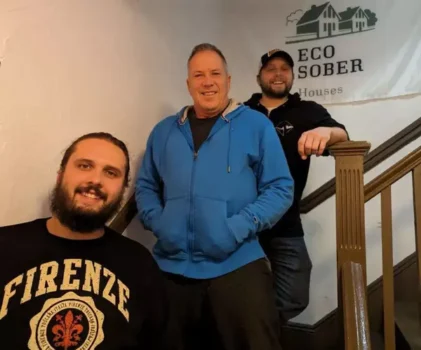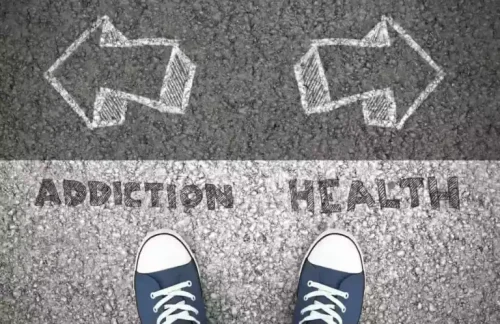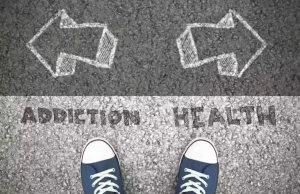
While law enforcement plays an important role in prevention, a growing emphasis is being placed on harm reduction strategies. These include supervised injection sites, needle exchange programs, and increased access to naloxone, a medication that reverses opioid overdoses. Rather than solely punishing drug users, these approaches focus on minimizing harm and connecting individuals with treatment resources.
Mental Health and Loneliness
Effective prevention strategies target individuals, families, schools, and communities to raise awareness and reduce access to harmful substances. Outpatient rehab allows individuals to live at home while attending scheduled treatment sessions. This option provides flexibility for those who need to continue working, attending school, or fulfilling family responsibilities. substance abuse counseling definition While outpatient programs can be effective, they require strong motivation and a supportive home environment to prevent relapse. Both inpatient and outpatient rehab focus on addressing the root causes of addiction and teaching individuals skills to maintain long-term sobriety.
Help for Mental Illnesses
Enforcing penalties for DUI offenses, including fines, license suspensions, and mandatory treatment programs, discourages individuals from driving while impaired. Additionally, law enforcement efforts targeting drug trafficking help reduce the availability of illegal substances in communities. Media campaigns, community workshops, and online resources provide information about the risks of substance abuse and the importance of early intervention.

NIMH Information Resource Center

Relapse —Returning to a previous behavior pattern of heavy drinking or substance abuse after treatment. Around 48% of people working in the addictions field hold a master’s or doctorate. The goal is to help people gain greater self-awareness and an understanding of the community resources and treatments available to help them recover. Many states require you to have a master’s degree for addiction counseling licensure and certification.
Research indicates that individuals who begin using drugs or alcohol at a young age are at a much higher risk of developing addiction later in life. This is because the brain is still developing during adolescence, making it Drug rehabilitation more vulnerable to the long-term effects of substance use. When young people use substances regularly, their brains adapt to the presence of these chemicals, increasing the likelihood of dependence and addiction. Substance use refers to the act of consuming alcohol, prescription medications, or illegal drugs.
- Approaches to treating substance misuse and addiction have undergone many changes over time.
- Addiction and mental health counseling is an opportunity to change lives and strengthen communities.
What medications and devices help treat drug addiction?
The goal is to gather detailed information to create a personalized treatment plan that addresses all aspects of your situation. Medications are also available to help treat addiction to alcohol and nicotine. Finding support can be difficult, especially when there may not be others around who understand your situations and experiences. Addiction counseling is beneficial for anyone struggling with a substance use disorder and who may feel alone or lost in their struggles.

Education Requirements for Substance Abuse Counselors
These initiatives target individuals in high-risk environments, including low-income neighborhoods, homeless populations, and those with a history of trauma or family substance abuse. Programs such as after-school activities, mentorship programs, and recreational centers offer healthy alternatives to drug and alcohol use. Instead, it results from a combination of biological, psychological, social, and environmental influences. Understanding these risk factors allows for more effective prevention efforts, early intervention, and targeted treatment approaches.
- Unlike simple substance use, which may not cause negative effects, abuse is marked by patterns of consumption that result in physical, psychological, legal, or social problems.
- Learn about NIMH priority areas for research and funding that have the potential to improve mental health care over the short, medium, and long term.
- They are used primarily to proactively reduce anxiety symptoms and improve an individual’s ability to be present.
- These show that the counselor has met the education, experience, and ethical standards needed.
However, increasingly a bachelor’s degree in Psychology, Sociology, Social Work or a related field is required to be considered for a position. In addition, it is always wise to study a foreign language as bilingual and multilingual candidates are highly sought after. Certain counselors adjust fees based on income, allowing for lower session costs through a sliding scale payment system.
- Substance abuse counselors typically work in substance abuse treatment facilities, such as outpatient clinics and residential treatment centers.
- These counselors help clients address the root causes of their addictions, develop coping strategies, and work toward sustained recovery.
- Individuals with untreated or undiagnosed mental health disorders are particularly vulnerable to substance abuse.
- As a result, patients are able to handle stressful situations and various triggers that might cause another relapse.
- The requirements to become an addiction counselor (substance abuse counselor) can vary based on your employer and which state you live in in the U.S.
Connect with NIMH
- Trusted sources can give you a personal touch, suggesting counselors they know and respect.
- The goal is to support each person’s self-efficacy so that they feel motivated and capable of achieving their goals.
- A trusting relationship is formed by the counselor, who promotes self-reflection and personal development by providing a supportive and nonjudgmental environment.
- For most positions, a bachelor’s degree is required to be an addiction counselor.
- Learn more about NIMH newsletters, public participation in grant reviews, research funding, clinical trials, the NIMH Gift Fund, and connecting with NIMH on social media.
Group therapy for substance use is one of the most useful types of therapy, as it provides the greatest ability to build positive sober relationships while also not feeling alone. Most counselors will perform individual and group therapy with their clients to help find the best mixture of topics and issues to be addressed. After this initial assessment, the addiction counselor will begin discussing goals the individual would like to achieve and potential needs that the counselor has observed. When all these concepts are incorporated together, an addiction treatment plan is established.
CBT has many different forms; however, they primarily focus on the relationships between thoughts, emotions, and behaviors. By learning how each interacts with the other, the individual can improve their experience by managing each thought, emotion, and behavior more effectively. The substance abuse counselor is a mental health counselor specializing in treating patients who have a chemical dependency on drugs or alcohol. Whether counseling addicts or those who fear they will become addicts, a substance abuse counselor works with their client to help them overcome their dependency and become self-sufficient. The role of a substance abuse counselor in addiction treatment recovery encompasses being emotionally present and available, offering direction, and implementing therapeutic strategies. A person’s ability to control cravings and relapse triggers, develop healthy coping mechanisms, and establish attainable objectives are all enhanced with the support of a counselor.
